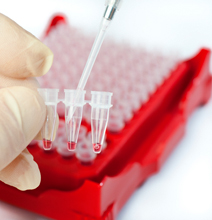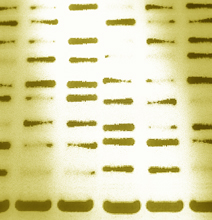Genetic test
WHAT IS IT?
There are genetic tests that can identify mutations with a potential to cause hereditary cancer.
In fact, in the last decades, scientists have discovered several genes that when mutated almost always lead to cancer in those carrying the mutation.
These genes vary with the type of inherited cancer. For example in breast cancer, the most common mutations affect the BRCA (Breast Cancer Genes) genes, while in colorectal cancer the mutated genes tend to be MLH1, MSH2, MSH6 (causing HNPCC), APC (causing FAP) and MYH (causing MAP).
Knowing the mutation that affects your family allows to:
- identify family members carrying the mutation,
- design appropriate measures for the surveillance and prevention of the disease,
- put at peace the family members without that mutation, those with a risk of cancer no different from that of the general population






